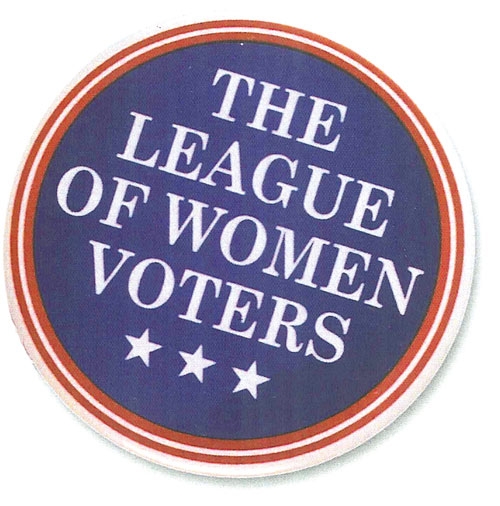
This week, the Pioneer Press took a look at the new chair of the Minnesota Chamber of Commerce Board of Directors and determined he’d given “almost $1,500 to Republican candidates since 2008– and nothing to local Democrats.” The major daily paper penned a piece that included a breakdown of political donations from 10 of the 23 Chamber board members who have given to partisan races since 1998, concluding that the 10 members who donated give mostly to the GOP.
As a part of our “Money in Politics” series, Alpha News takes a look at another very influential organization in the state, The League of Women Voters (LWV.) While the LWV as an organization doesn’t give directly to candidates like the Chamber of Commerce, they hold a power-position in state politics as the primary sponsor of debates for elected offices across Minnesota.
The League lobbies for liberal causes at the national level including for universal healthcare and climate change legislation. In Minnesota, they’ve promoted restoring voting rights to felons still on probation, tighter campaign finance rules, and against Photo ID to vote. The organization joined the lawsuit to prevent the Photo ID question from appearing on the ballot in 2012. (It made it unto the ballot and was defeated with less than half –46%– of Minnesotans voting in favor of showing a photo ID to vote. The issue had 80% approval in polls taken in 2011.)
Amnesty for illegal immigrants and stricter gun control measures are also included in the League’s platform, which is called “non-partisan”. The Minnesota League also promotes to its members ideas like “Privilege-Checking” by acknowledging that the “mainstream feminism remains dominated by the straight, white, middle-classes.” While the organization touts its lack of allegiance to any political party, it’s ideas are undoubtedly on the left side of the political spectrum.
The LWV hosts local school board, city council, and state legislative debates and most of the time the LWV debate is the only forum where voters can go and make up their minds about candidates. The League states on its website that “We never support political parties of candidates for public office.” As an organization, that’s true. But several board members and local League leaders have been donors and/or active with partisan politics.
Per the website followthemoney.org, the Minnesota Campaign Finance Board, and other online records, four of the fifteen Board of Directors at the state level have a history of donations and/or activism in the Democrat party:
- Cyndi Anderson, $1,625 to DFL candidates since 2004, Becker County DFL 2014-2016 DFL Director
- Judy Berglund, $615 to DFL candidates and the DFL party since 2004, former employee of Education Minnesota, the Teachers Union
- Kelly Guncheon, $1,125 to DFL candidates and the DFL House caucus since 2004
- Kathy Tomsich, $1,250 to DFL candidates and the House and Senate DFL since 2010
One board member did donate to a Republican candidate for office:
- Susan Clark donated $2,000 donation to John Howard, a “Republican Climate Change Activist” who ran against incumbent Republican Congressman Erik Paulsen in the 3rd Congressional District (Howard is her son.)
The new President of the state League is Terry Kalil, who caucused with the Becker County DFL as recently as 2012. Kalil has been active in the Detroit Lakes Area League of Women Voters and has served as a debate moderator as recently as 2014. She is a vocal advocate for pay equality and has characterized the League as being run by “well-to-do white women.” (Kalil is a white woman.)
Of the nine remaining state-level board members, none had records of partisan political donations or affiliations that could be found via online searches.
The Minnesota League’s business manager, Katie Rodriguez, is also an active DFL’er having run as the endorsed candidate in House District 32B in 2010. She was appointed to the Metropolitan Council by Governor Mark Dayton earlier this year.
In addition to DFL involvement at the state level, the local leagues can also become mired in partisan politics. Last fall the LWV Eden Prairie, Minnetonka, Hopkins chapter kicked out a tracker with a Republican-friendly organization trying to video tape at the public debate in Minnetonka city hall. State board member Tomsich defended the action saying that “Video trackers could “edit” their video of the candidate forum and then show the edited version on their web site. The edited version could make substantial changes, enhancing one candidate at the expense of the opposing candidate(s). In contrast, when the city staff video tapes an event like this and replays it on the community access channel, you can be confident no editing has occurred.”
Republican State Senator David Hann,(R-Eden Prairie) raised the issue of the League’s partisanship in 2012, when his DFL opponent’s treasurer, Peggy Kvam, was also the local League’s voter service chair who invited him to the debate. The local League President, Geneva MacMillian, told the Eden Prairie News, “He’s concerned that we may be planting questions and we don’t even think of anything like that. We pride ourselves on running a clean show and his concern is that we are not nonpartisan.”
Mary Tamborino, also with the local League added “Disparaging the League of Women voters is a common tactic, especially among the Republicans.” Tambornino is active with Women Winning, an organization who supports DFL women candidates for office and is also the current campaign chair of DFL candidate Tim Reardon’s House District 46A committee, which recently filed with the state. Tambornino is still on the Board of Directors for the League of Women Voters Minnetonka, Eden Prairie, Hopkins chapter.
Another League President, Lynn Solo of the St. Peter chapter, is pictured above going questions at an LWV debate, and has donated $7,500 to Democratic Congressman Tim Walz (MN-01) since 2009. Solo donated $500 to DFL Rep Clark Johnson, (19A-North Mankato) and was a vocal supporter of his 2013 candidacy.
Local League debate formats consist of questions submitted by audience members and then given to a moderator who selects which questions will be asked of the candidates. Questions can be submitted ahead of time as well as at the debate.
While the Pioneer Press validly takes a closer look at the Minnesota Chamber of Commerce and the partisan predilections of their board members, voters should also be made aware of the fact that leaders of the state’s largest host of nonpartisan candidate forums have party preferences as well.





